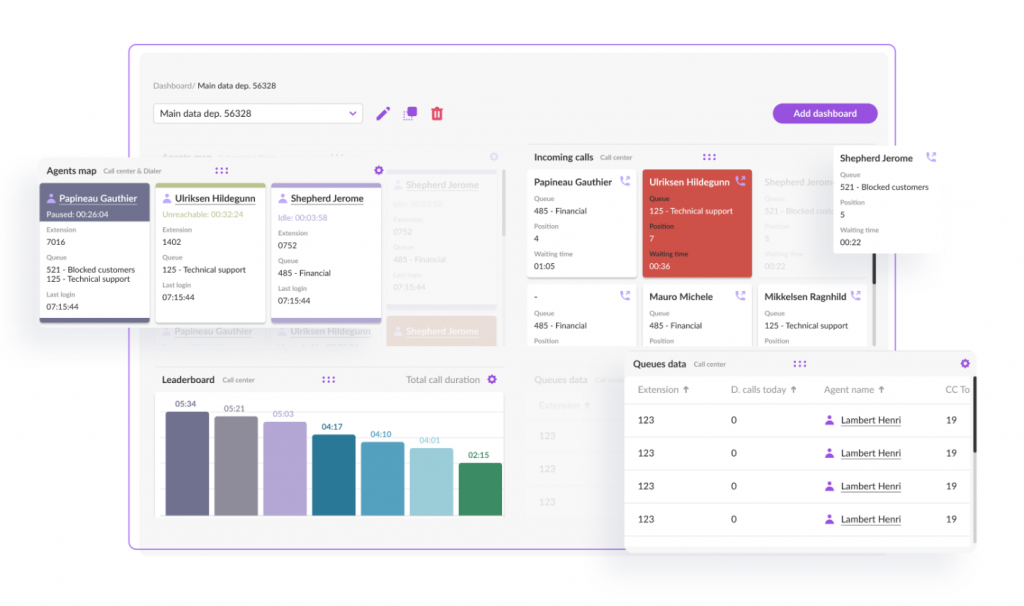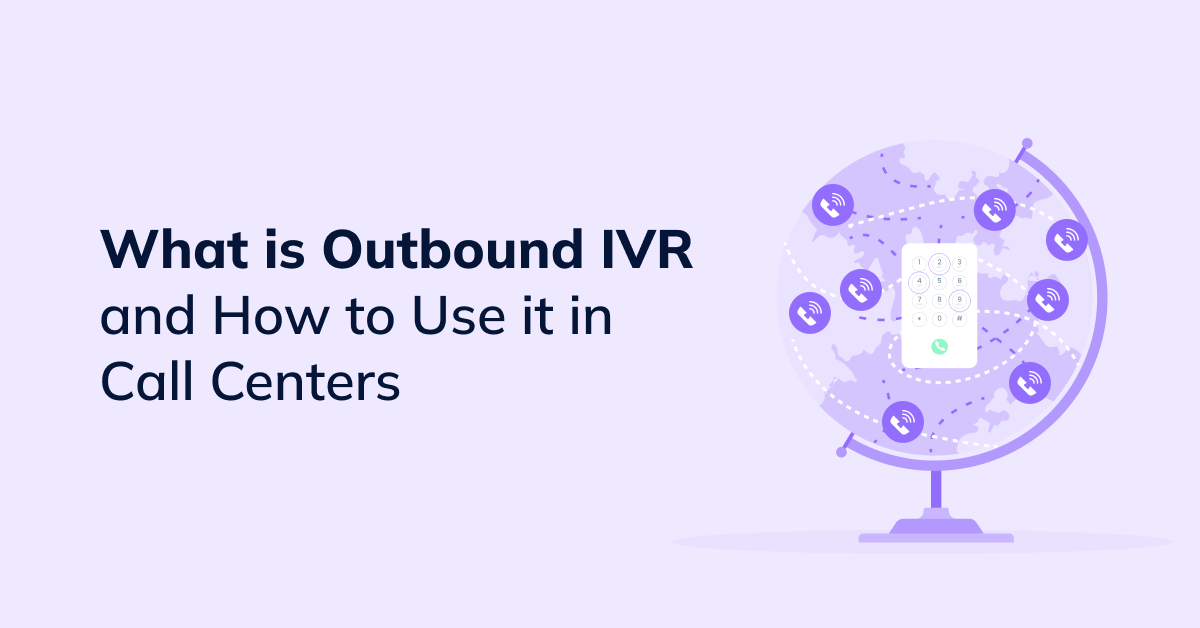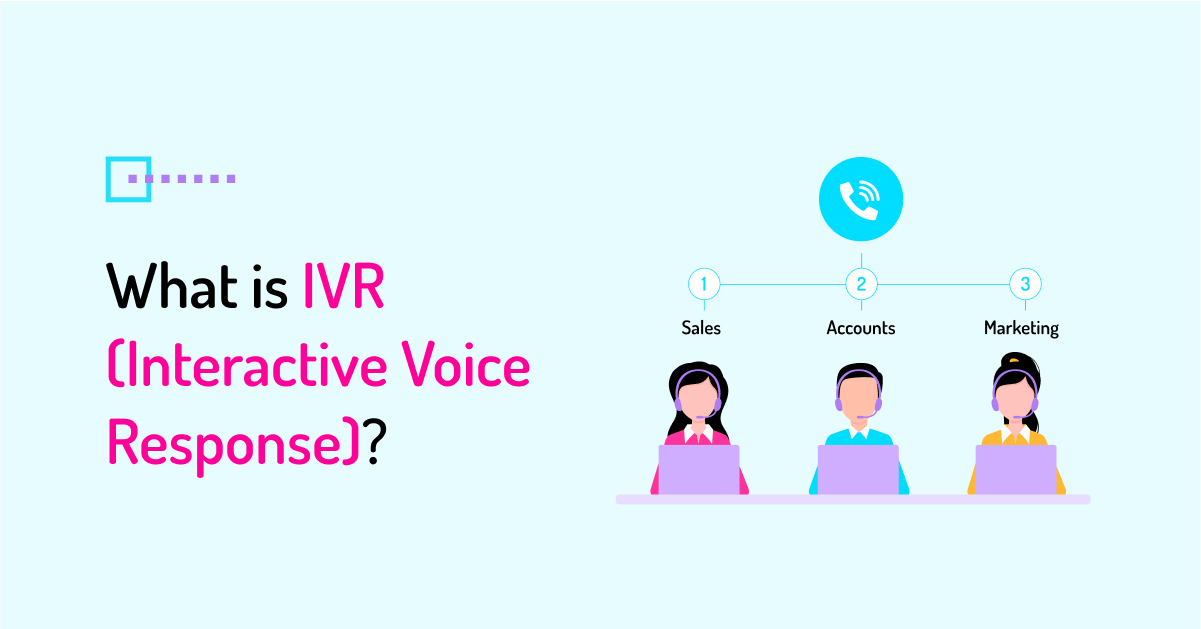After Call Work (ACW) plays a crucial role in maintaining efficient call center operations, improving agent performance, and delivering excellent customer service. Along with other critical metrics and KPIs, contact centers should pay close attention to ACW in order to provide quick and effective customer support and keep agents consistently productive while achieving their performance objectives.
What is ACW in a Call Center?
After Call Work (ACW) – also known as Wrap-Up Time or Post-Call Work – refers to all the post-call formalities call center agents are typically engaged in after they complete the interaction with a customer before taking the next call. Based on the purpose of the call, ACW activities may vary, but they usually involve the following actions:
- Updating customer information and logging call reasons and outcomes in the CRM
- Writing up a summary of the call and leaving call notes in the call center’s CRM system
- Escalating product or service-related issues reported by customers to relevant teams
- Planning and scheduling the necessary follow-up actions after the interaction
- Documenting customer feedback and forwarding it to appropriate team members
When defining ACW call center meaning, it’s important to mention that After Call Work is part of the Average Handle Time, making it a vital component of call center’s overall operational efficiency and agent performance. Thus, keeping track of how agents spend their time after interactions helps managers get valuable insight into agent efficiency and productivity.
How Long Should After Call Work Take?
While there is no universally accepted benchmark for how long call center ACW should take, a recent Call Center Performance Report revealed that the average ACW time across call centers is around 45 seconds. The actual duration of ACW may vary based on a number of reasons, including the industry, the type and complexity of the interaction, agents’ skills and experience, call center system efficiency, and specific policies and guidelines of a contact center.
These are the main factors that can significantly impact the duration of ACW:
Industry and sector
Some industries, such as retail and eCommerce, generally have simpler and shorter post-call procedures, while industries like IT, finance, or insurance would usually require agents to spend more time on post-call activities.
Call complexity
Basic customer inquiries about a company’s products or services would require fewer follow-up tasks, thus, ACW would commonly be shorter. On the contrary, complicated technical issues would usually need more time for ACW.
Agent experience
More experienced agents might naturally complete ACW faster than those who are still getting familiar with the processes. The State of Contact Center report found that experienced agents can wrap calls 20% faster than novices.
Agent behavior
Sometimes agents may intentionally extend call-wrap-up time to avoid engaging with the next customer, leading to increased call avoidance. This is more prevalent in inbound call centers where agents are required to handle large inbound call volumes and may experience burnout.
Why is After Call Work (ACW) an Important Call Center Metric?

Dedicated follow-up time
ACW enables call center reps to accurately log call details in the CRM system and spend dedicated time on follow-up actions, which may include updating relevant teams, escalating customer concerns to higher-level support agents, or planning and scheduling further actions.
Self-assessment and learning
Engaging in ACW tasks provides a window of opportunity for call center agents to reflect on their own performance during each call, learn from customer interactions, spot their weak points, and identify areas where they lack knowledge or specific skills required to efficiently handle customer requests.
Reduced agent burnout
The fast-paced nature of call center work, having to jump from call to call, and engage in challenging conversations often contributes to increased workplace stress and burnout. ACW allows agents to decompress and helps reduce emotional fatigue before the next interaction, thus reducing potential burnout.
Improved customer service
When agents update customer information and essential aspects of each interaction in the CRM during ACW, it becomes available and instantly accessible to other agents, giving them more context and enabling them to deliver a more seamless and personalized service experience in further customer interactions.
Compliance and legal protection
Properly documenting all the details of customer interactions during ACW helps call centers ensure they consistently adhere to legal and regulatory requirements. Call center managers can easily refer to these records in case of potential disputes or inquiries.
How to Reduce ACW in a Call Center?
After Call Work can have a direct impact on a number of other contact center metrics like the Average Handling Time, the Average Speed of Answer, Agent Occupancy, Service Level, as well as overall call center productivity. That is why continuously measuring ACW and taking timely measures to reduce call wrap-up time in case it takes longer than expected is often an important priority for call center leaders. Below are some of the most efficient ways to reduce ACW in call centers.
Setting realistic ACW targets

Though reducing the amount of time agents spend on After Call Work is a common goal for call center managers, it’s essential to ensure that you set ACW targets that are realistic and achievable. Unrealistic targets might cause agents to rush through post-call tasks and lead to potential mistakes, increased workplace stress, and burnout. Agents should strive to strike the right balance between completing post-call tasks promptly and ensuring accuracy in documenting customer information.
Targeted training and coaching
When particular agents are engaged in After Call Work for a significantly longer time than other team members, that can be a strong indicator that they require additional training. Tailored one-on-one coaching sessions targeted at improving an agent’s post-call processing skills is one of the most efficient ways to improve ACW in call centers. Agents should also be taught to properly prioritize their post-call activities to ensure their call wrap-up time is spent effectively.
Using shorthand and abbreviations
Thoroughly documenting every aspect of customer interactions might be a time-consuming task that additionally depends on the typing speed of a specific agent. Utilizing shorthand and abbreviations can help agents greatly reduce the time spent on After Call Work. Because it’s critical to ensure an agent’s notes in the CRM system are comprehensible and can be accurately interpreted by other agents who might be serving that particular customer in the future, it makes sense to develop a common style guide that everyone can easily comprehend and refer to whenever needed.
Implementing an ACW timer
Implementing an ACW timer is a simple yet efficient way to track and manage the duration of After Call Work. Setting an ACW timer helps ensure agents are completing their post-call processing activities within the designated time frame. That also enables managers to identify agents who are consistently extending this time limit (e.g., due to slow typing speed or lack of process knowledge) and might require extra coaching. It’s important, however, to give agents an opportunity to extend the wrap-up time whenever necessary.
Investing in call center automation tools
After Call Work activities might be time-consuming as they require lots of manual data entry, especially if your agents are making outbound calls to cold leads. Automating at least some of the repetitive tasks with advanced AI-powered call center software solutions can cut down the amount of manual work for agents, freeing them up for more productive activities and reducing your ACW time. These might include tasks like creating call summaries, updating CRM records, managing follow-ups, etc.
Performing some ACW activities during the call
For contact centers with limited call center automation capabilities, the only way to reduce the time agents spend on ACW is to encourage them to perform some of the simple and straightforward follow-up activities while they are still on a call with the customer. But it should only be done without compromising the overall quality of the interaction; otherwise, it may increase the Average Hold Time and reduce Customer Satisfaction Score (CSAT).
Integrating call center software with CRM
By integrating call center software with a Customer Relationship Management (CRM) system, agents can benefit from automation capabilities and streamlined workflows, helping them reduce the time they spend performing After Call Work.

E.g., by integrating VoiceSpin’s call center software with a business’s CRM system, all calls will be automatically logged into the CRM, saving agents from having to do it manually and constantly switch between the two systems.
Regularly monitoring and reviewing ACW procedures
ACW procedures should be regularly and consistently monitored and refined as needed. Constant monitoring can help managers uncover workflow or process inefficiencies, training gaps, or any other bottlenecks that are hindering the ACW metric and prevent agents from completing their post-call processing tasks quickly, accurately, and efficiently. In case of ACW spikes, managers can take timely measures to address the issues and avoid an increase in AHT while also reducing overall call center costs.





 +18889082995
+18889082995
 +442036084160
+442036084160
 +97237237006
+97237237006